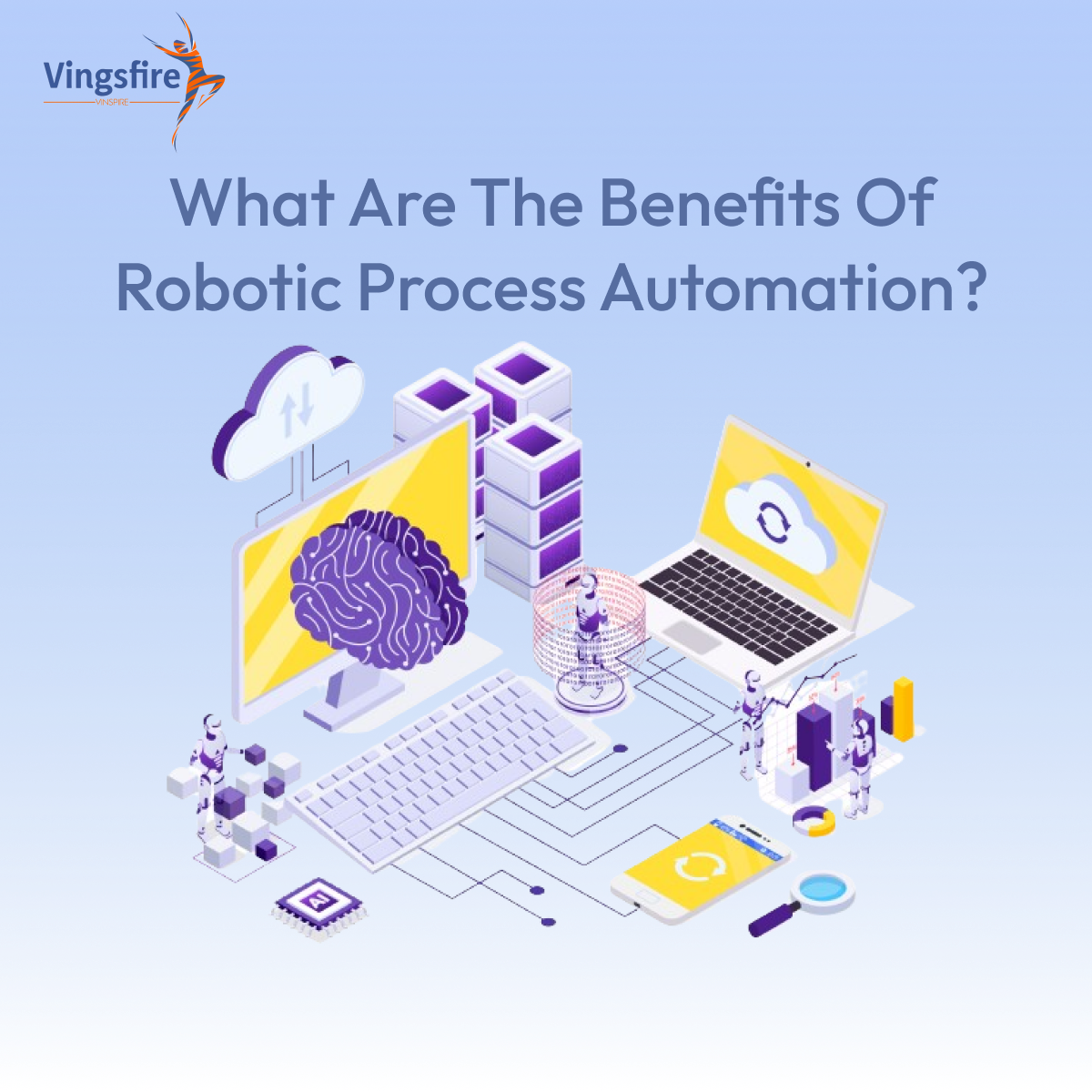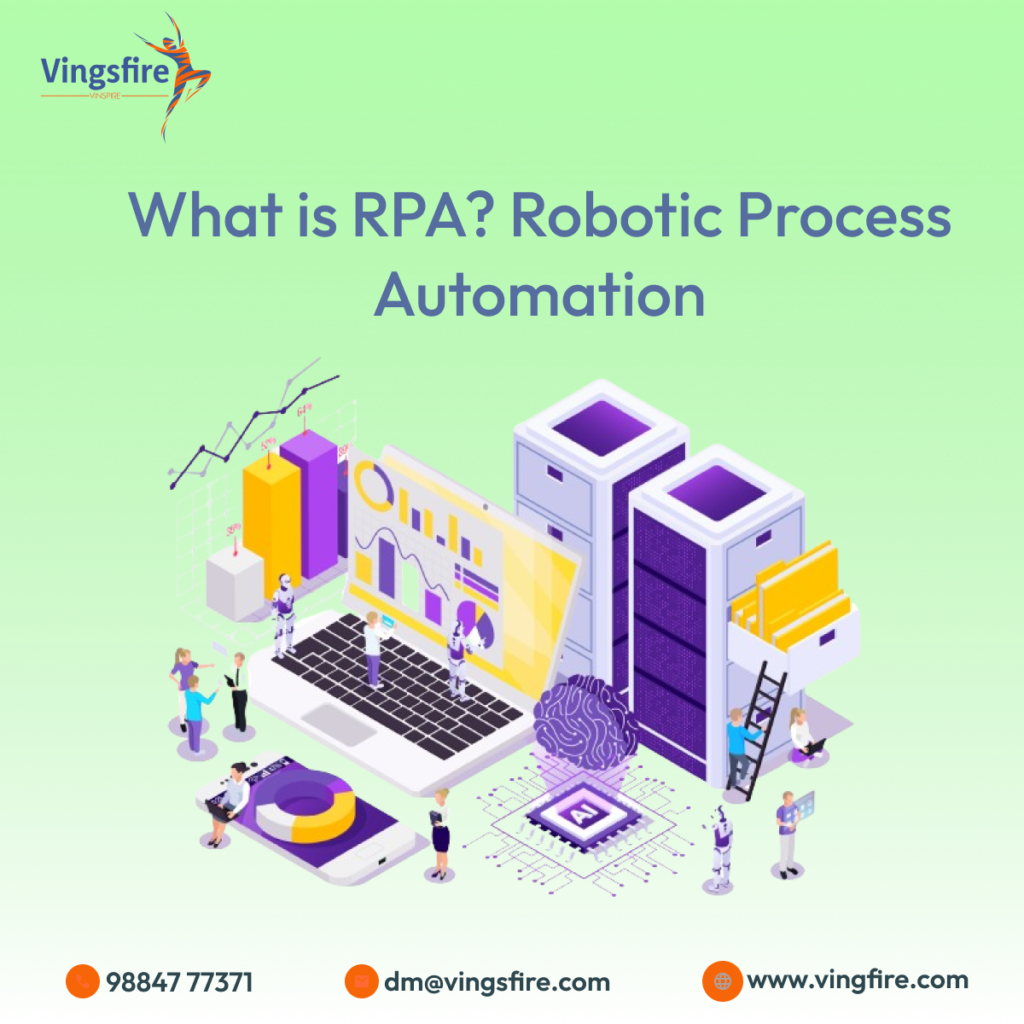Introduction:
In the rapidly evolving landscape of technology, rpa robotics process automation businesses are continually seeking innovative solutions to streamline their operations and enhance efficiency . One such groundbreaking advancement is Robotic Process Automation (RPA). This transformative technology has gained prominence for its ability to automate mundane and repetitive tasks, allowing organizations to focus on higher-value activities. In this blog post, we will delve into the myriad benefits of Robotic Process Automation, shedding light on how it revolutionizes workflows and contributes to overall business success.
LEARN MORE ABOUT VINGSFIRE:-
1.Enhanced Efficiency and Productivity:
One of the primary advantages of RPA is its ability to significantly improve efficiency and productivity. By automating routine and rule-based tasks, RPA allows employees to redirect their efforts towards more strategic and creative endeavors. This not only reduces the likelihood of errors but also accelerates the completion of tasks, leading to enhanced overall productivity.
2.Cost Savings:
Implementing Robotic Process Automation can lead to substantial cost savings for businesses. RPA systems operate 24/7 without the need for breaks or holidays, ensuring continuous workflow automation. This not only reduces labor costs but also minimizes the occurrence of costly errors associated with manual data entry.
3.Accuracy and Error Reduction:
Human errors are inevitable in repetitive tasks. RPA systems, on the other hand, execute processes with remarkable precision and accuracy. This leads to a significant reduction in errors, ensuring data integrity and enhancing the quality of outputs. As a result, rpa robotics process automation & organizations can make more informed decisions based on reliable data.
4.Improved Compliance:
In industries where regulatory compliance is a critical concern, RPA provides a robust solution. RPA systems adhere strictly to predefined rules and regulations, reducing the risk of non-compliance. This not only ensures that businesses operate within the bounds of the law but also simplifies audit processes by providing a detailed and accurate trail of automated activities rpa robotics process automation.
5.Scalability:
RPA systems are easily scalable, allowing businesses to adapt to changing workloads and demands. Whether an organization experiences a sudden surge in tasks or needs to scale down during slower periods, RPA can dynamically adjust to meet the requirements. This scalability ensures that businesses can remain agile and responsive in today’s dynamic market conditions.
6.Enhanced Customer Experience:
By automating routine tasks, businesses can redirect their focus towards improving customer service. RPA allows for faster response times, quicker query resolutions, and improved service delivery. This not only enhances customer satisfaction but also contributes to the overall positive perception of the brand.
7.Employee Satisfaction:
RPA doesn’t replace human workers but rather complements their capabilities. By automating mundane tasks, employees can shift their focus to more challenging and rewarding aspects of their roles. This not only contributes to a more engaged and satisfied workforce but also encourages professional development as employees take on higher-value responsibilities.
8.Faster Time-to-Market:
In today’s fast-paced business environment, speed is often a competitive advantage. RPA accelerates various processes, reducing the time it takes to bring products or services to market. This agility can be a game-changer, especially in industries where being the first to market is crucial.
9.Data Analytics and Insights:
RPA generates valuable data as it automates processes. This data can be analyzed to gain insights into business operations, identify areas for improvement, and make informed strategic decisions. The integration of RPA with analytics tools empowers organizations to harness the full potential of their data for better decision-making.
Conclusion of (rpa robotics process automation):
In conclusion, the benefits of Robotic Process Automation are extensive and multifaceted. From cost savings and enhanced efficiency to improved compliance and customer experience, RPA has the potential to revolutionize the way businesses operate. As organizations continue to embrace digital transformation, the integration of RPA into their workflows becomes not just a choice but a necessity for staying competitive in today’s dynamic business landscape.






